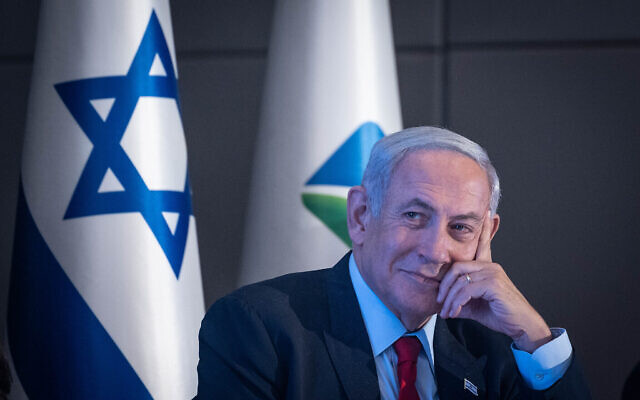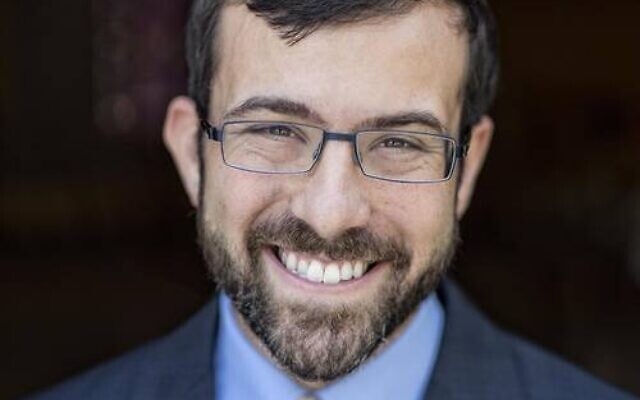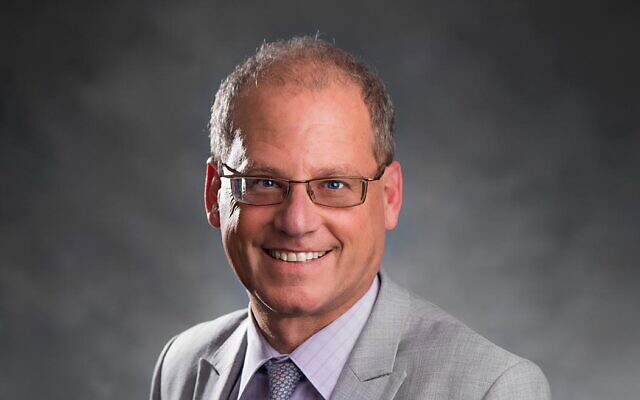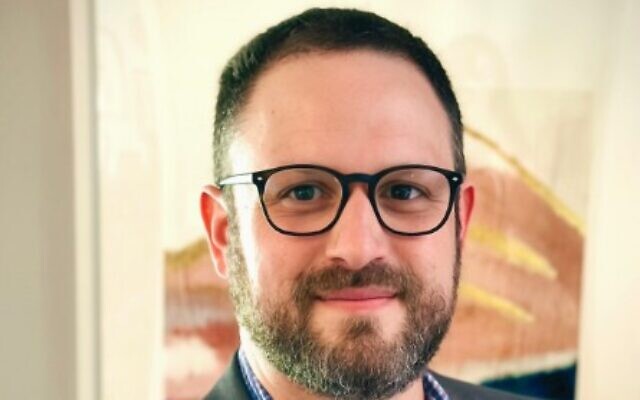Atlanta Jewish Community Reacts to Fissures in Israel
Many are using their voices after years of “speaking” with their checkbooks.

The physical distance between Atlanta and Israel may be 6,500 miles, but the emotional distance has narrowed in the past weeks and months. Members of the Atlanta Jewish community, including many Israelis, have not only watched what is happening in Israel, they have acted, and are reacting to what many observers say is perhaps the severest domestic crisis in its 75-year history.
It has been less than a month since the Israeli parliament, the Knesset, voted 64-0 to pass the controversial first piece of legislation in a package of laws proposed to alter the country’s judicial system; all 56 members of the opposition parties boycotted the vote. The set of laws proposed in January, just days after Prime Minister Benjamin Netanyahu’s government was sworn in, has sparked more than 30 weeks of protests across Israel. And, at the request of many of those protesters, the demonstrations have spread like wildfire around the world, including in Atlanta.
Less than one week after the Knesset vote on July 24, and after repeated protests at different locations around Atlanta in the last few months, approximately 70 mostly Israeli protesters, including a couple of local rabbis, walked from the Jewish Federation of Greater Atlanta to the Consulate General of Israel Atlanta – like Israeli protesters, waving Israeli flags.
For decades, Atlanta Jews, like other Diaspora Jews, have been contributing millions of dollars to Israel, both to right-wing organizations and left-wing groups. [Notably, it has been widely reported that the Kohelet Policy Forum, a conservative thinktank funded by two Jewish American billionaires, helped draw the judicial overhaul legislation. At press time, it was reported that one of the two billionaires has pulled his funding from Kohelet due to the divisions the overhaul has caused in the country.]
Now, many American Jews are beginning to speak up with their voices, not just their checkbooks. Not everyone agrees that they should.
Former Georgia State representative Mitchell Kaye believes, “The U.S. and Diaspora Jews should stay out of the internal affairs and politics of a democratically elected ally. Elections have consequences. We all need to tone down the political temperature and rhetoric as no one benefits. Both sides can be right and still disagree, but there is no need to be disagreeable.”
Dov Wilker, regional director of the American Jewish Committee Atlanta, disagrees. “I believe it’s absolutely within the rights of American Jewry to advocate [for Israel] whichever way you believe. What happens in Israel could have a direct impact on Diaspora Jewry. When there are issues that directly impact us, voices should be heard on both sides” of the controversy.

Rabbi Ari Kaiman of Congregation Shearith Israel points out that the Israeli protesters are “calling to worldwide Jewry and specifically to U.S. Jewry” to join the “biggest protest in Israeli history.”
“It is important for American Jews. Our Zionism and our love of Israel impels us to be involved, to be knowledgeable and learn about current events in Israel. We should protest out of our love for Israel,” said Kaiman. “Worldwide Jewry has a role to play in what may be the most important part of Jewish history. How can I not be involved and use my voice? There’s been so much apathy for years. I don’t have an expectation that we all agree, but I do expect us not to have contempt for one another.”
During a recent 10-day visit to his homeland, Atlantan Dotan Harpak observed that at every protest or social event he attended, he “talked about what we’re doing here in Atlanta. People were moved and thanked us for protesting. No one saw this as a negative; no one thought we were ‘airing dirty laundry outside’. Quite the opposite. Folks in Israel are increasingly seeing how the protests abroad, particularly in the U.S., are changing the discourse in Israel and how it is impacting the government.”
Harpak, one of the Israeli organizers of the Atlanta protests, added that it was good, “knowing what we’re doing is not in vain. It matters, both to people over there, and to the politics of this thing on both sides of the ocean.”
And it’s not only Israeli-born U.S. citizens who are traveling to Israel. Although Wilker acknowledged that this could change long term, he said “people are still going to Israel,” particularly pointing to Birthright and synagogue trips.

Indeed, Cheri Scheff Levitan, CEO of Israeli-based Kenes Tours, emphasizes that her company’s business has not at all been impacted by the current political situation. “This certainly could change, but as of today, no one has canceled trips saying, ‘I’m not comfortable visiting the country right now’ due to politics. When it comes to tourism, the pent-up demand that was generated by the pandemic continues. People are traveling more often, for longer periods, and are willing to pay more.”
Similarly, Wendy Yaniv, founder of 5 Senses Tour Israel, reported that tourism remains strong, “but there are changes made to the itineraries, when needed, to avoid traffic situations and areas with tension. Since the vote, people are indeed watching, and I am getting some calls. I have groups making final payments for fall trips and they are voicing concerns about not being able to travel freely due to the protests as well as concerns about security. The protests are very peaceful, so it’s just a matter of avoidance. We’re dealing with some very big events simultaneously: an extreme government, demonstrations, tensions on the northern border, and the top echelons of reservists in the IDF refusing to serve.”
Yaniv added, “My groups know that these tours are my passion, not my paycheck so if I feel (for any reason) that I cannot deliver the experience that they deserve, I will suggest we move to a different date. As of now, I have not had to do that, but we are definitely in an interesting time.”

That has not gone unnoticed by the Jewish establishment in Atlanta. At the Jewish Federation of Greater Atlanta, CEO and president Eric Robbins said some donors have wondered why the organization is not taking a position vis a vis the Israeli protests, but he notes that the Federation is not a political group. “We remain committed to peoplehood, but we stay out of politics,” he told the AJT, adding, however, that the Federation gave permission for the Atlanta protesters who marched from its location to the Israeli consulate in late July, to park at the Federation.
“The Federation can weigh in about democracy, but all we can do is advocate and educate and continue to elevate” the community’s engagement with Israel.
Admitting that “it’s scary” and “hard to watch personally” the events in Israel, Robbins’ biggest concern is for the next generation of Jews and how they might be distanced from Israel due to what is happening there.
As someone who teaches young people, Eli Sperling, Israel Institute Teaching Fellow in the University of Georgia’s Department of International Affairs, doesn’t feel the same concern. He suggests that may be a reflection of his approach to teaching Israel. “It doesn’t focus on connection or affinity. My focus is more on understanding. I want the students to know what Israel was, is and where it’s going. I find that when they understand better, they are more connected.”

Sperling acknowledges that he doesn’t know how many of his students are Jewish. Last fall, when he first taught the class on Israel politics at UGA, there were only 28 in the class. This fall there will be 42 in the class which starts Aug. 16.
“When students really understand what’s happening, they find the different groups in Israel to align with, rather than” outright support for the government, he added.
Emphasizing that he doesn’t know how the situation will play out, Kaiman expressed concern that the U.S. government, at some point, might reconsider its long-time supportive relationship with Israel. “There are so many reasons for the U.S. to have a close relationship with Israel. I never want to have that conversation.”
At least one Georgia senator seems to both mirror and allay Kaiman’s fear. “I’m monitoring events in Israel carefully and with serious concern,” Sen. Jon Ossoff said. “America needs in Israel a strong, stable ally committed to our shared values.”
- News
- Local
- Jan Jaben-Eilon
- Knesset
- Benjamin Netanyahu
- proposed juducial overhaul
- jewish federation of greater atlanta
- Consulate General of Israel Atlanta
- Kohelet Policy Forum
- Mitchell Kaye
- Dov Wilker
- American Jewish Committee
- Rabbi Ari Kaiman
- Congregation Shearith Israel
- Dotan Harpak
- Birthright
- Cheri Scheff Levitan
- Kenes Tours
- Wendy Yaniv
- 5 Senses Tour Israel
- Eric Robbins
- Eli Sperling
- University of Georgia’s Department of International Affairs



comments